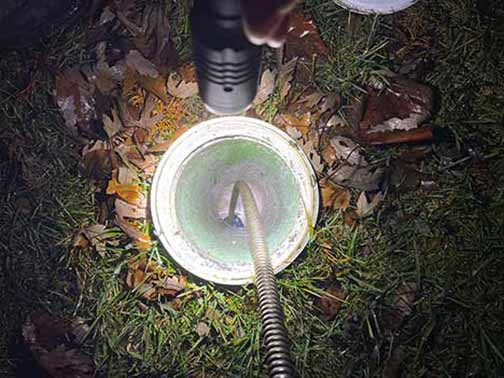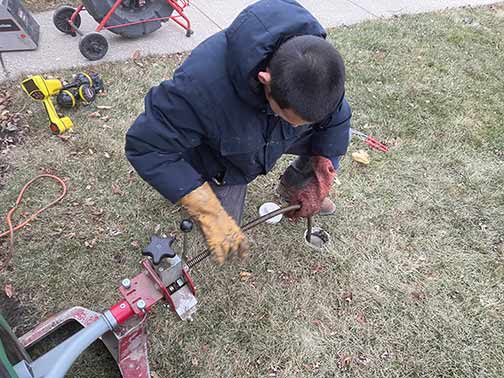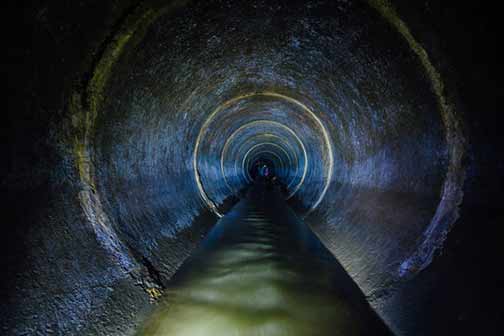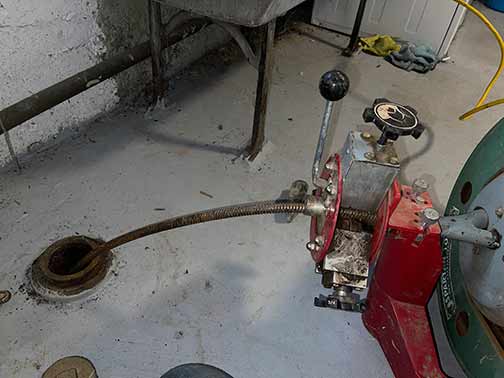
Preventative sewer rodding is a proactive maintenance technique used to keep sewer lines clear and functioning efficiently. This process involves using a rod or flexible cable to remove blockages, debris, and buildup from the sewer pipes, preventing clogs and backups before they occur. By regularly performing sewer rodding, homeowners can avoid costly repairs and ensure their plumbing systems run smoothly. Understanding the intricacies of this technique can help homeowners appreciate its significance and the role it plays in maintaining a healthy plumbing system.
The Importance of Regular Maintenance for Plumbing Systems
Regular maintenance is crucial for the longevity and efficiency of any plumbing system. Just like any other part of your home, sewer lines require routine care to prevent issues from arising. Neglecting regular maintenance can lead to severe problems, including sewer backup emergencies, water damage, and costly repairs. Preventative sewer rodding is an essential part of this maintenance, helping to keep the sewer lines clear and functioning properly. By incorporating regular maintenance into your home care routine, you can ensure that your plumbing system remains in top condition, reducing the risk of unexpected issues and extending the lifespan of your pipes.
How Preventative Sewer Rodding Works: A Step-by-Step Guide
Preventative sewer rodding involves inserting a rod or flexible cable into the sewer line through an access point, such as a cleanout or drain. The rod is then pushed through the pipe, breaking up and removing any blockages, debris, or buildup that may be present. This process helps to maintain the flow of wastewater and prevents clogs from forming. In some cases, a high-pressure hydro jetting may be used in conjunction with the rod to thoroughly clean the pipes. Understanding the step-by-step process of sewer rodding can help homeowners appreciate the complexity and effectiveness of this maintenance technique.
Common Issues Prevented by Sewer Rodding: Protecting Your Plumbing System
Sewer rodding can prevent a variety of common issues that can plague plumbing systems. These include:
- Clogs: Buildup of grease, hair, soap scum, and other debris can cause clogs in the sewer lines, leading to slow drains and backups.
- Tree Root Intrusion: Tree roots can infiltrate sewer lines through small cracks or joints, causing blockages and damage to the pipes.
- Pipe Corrosion: Over time, pipes can corrode and develop buildup that restricts water flow. Sewer rodding helps to remove this buildup and maintain the integrity of the pipes.
- Odors: Blockages and buildup in the sewer lines can cause unpleasant odors to emanate from the drains. Regular rodding helps to eliminate these odors by keeping the pipes clean.
By addressing these common issues, preventative sewer rodding ensures that your plumbing system remains efficient and reliable, reducing the risk of unexpected problems and costly repairs.
Cost Savings from Preventative Maintenance: A Wise Investment
Investing in preventative sewer rodding can result in significant cost savings in the long run. By addressing potential issues before they become major problems, homeowners can avoid the high costs associated with emergency repairs, water damage, and sewer line replacements. Regular maintenance also extends the lifespan of the plumbing system, reducing the need for costly upgrades and replacements. In addition to financial savings, preventative maintenance provides peace of mind, knowing that your plumbing system is less likely to experience unexpected issues.
The Best Time for Sewer Rodding: Timing is Key
The best time for sewer rodding is before any noticeable issues arise. Homeowners should schedule preventative maintenance at least once a year, or more frequently if they have older plumbing systems or are prone to clogs and backups. Additionally, it is a good idea to have a sewer rodding service performed before the rainy season, as heavy rainfall can exacerbate existing issues and lead to sewer backups. By timing your sewer rodding maintenance appropriately, you can ensure that your plumbing system remains in optimal condition throughout the year.
Choosing a Professional for Sewer Rodding: Expertise Matters
While some homeowners may be tempted to perform sewer rodding themselves, it is often best to hire a professional plumber for the job. Professionals have the experience, tools, and knowledge to thoroughly clean the sewer lines and address any underlying issues. When choosing a professional, look for a licensed and insured plumber with positive reviews and a track record of successful sewer rodding services. Hiring a professional ensures that the job is done correctly and efficiently, reducing the risk of further issues and providing peace of mind.

Ultimately, while DIY sewer rodding can be effective for minor clogs, it is often best to leave this task to the professionals for more thorough and reliable results.
DIY Sewer Rodding: Pros and Cons of a Hands-On Approach
For those who prefer a hands-on approach, DIY sewer rodding can be an option. However, it is important to weigh the pros and cons before attempting this task:
- Pros: Cost savings, convenience, and the satisfaction of completing the task yourself.
- Cons: Lack of experience, potential for incomplete cleaning, and the risk of damaging the pipes or causing further issues.
Ultimately, while DIY sewer rodding can be effective for minor clogs, it is often best to leave this task to the professionals for more thorough and reliable results. Understanding the risks and benefits of DIY sewer rodding can help homeowners make an informed decision about their plumbing maintenance.
Long-term Benefits of Preventative Sewer Rodding: Ensuring a Healthy Plumbing System
The long-term benefits of preventative sewer rodding are numerous. By maintaining clear and efficient sewer lines, homeowners can enjoy peace of mind knowing that their plumbing system is less likely to experience clogs, backups, and other issues. This proactive approach also helps to preserve the value of the home, as well-maintained plumbing is an attractive feature for potential buyers. Additionally, regular sewer rodding reduces the environmental impact of plumbing problems, such as water waste and contamination from sewer backups. By investing in preventative sewer rodding, homeowners can ensure a healthy and efficient plumbing system for years to come.
Conclusion: The Value of Preventative Sewer Rodding
In conclusion, preventative sewer rodding is a valuable maintenance practice that can save homeowners time, money, and stress in the long run. By regularly cleaning and maintaining the sewer lines, potential issues can be addressed before they become major problems, ensuring the efficiency and longevity of the plumbing system. Remember, a stitch in time saves nine – investing in preventative maintenance today can prevent costly repairs and headaches in the future. By understanding the importance of preventative sewer rodding and incorporating it into your home maintenance routine, you can enjoy a reliable and efficient plumbing system for years to come.



